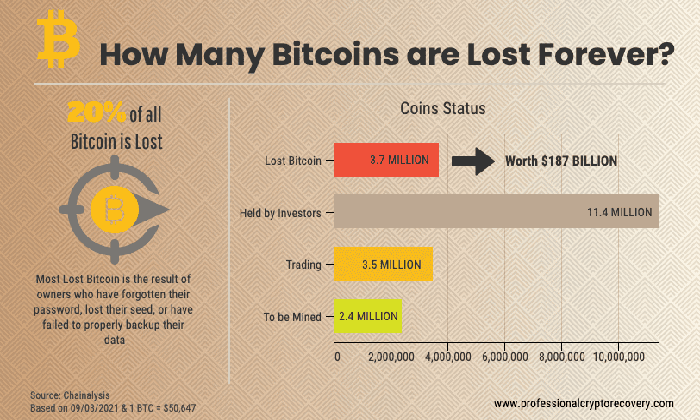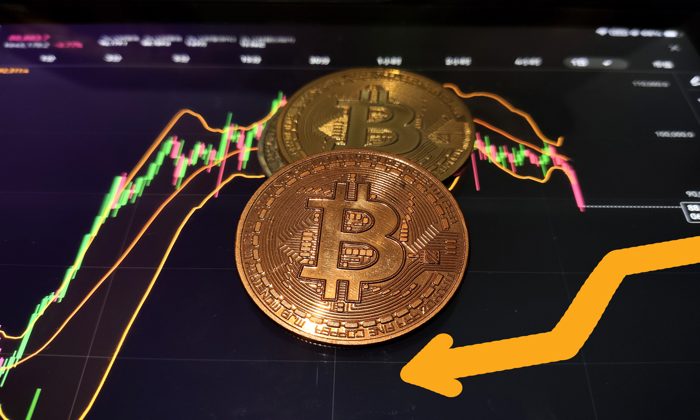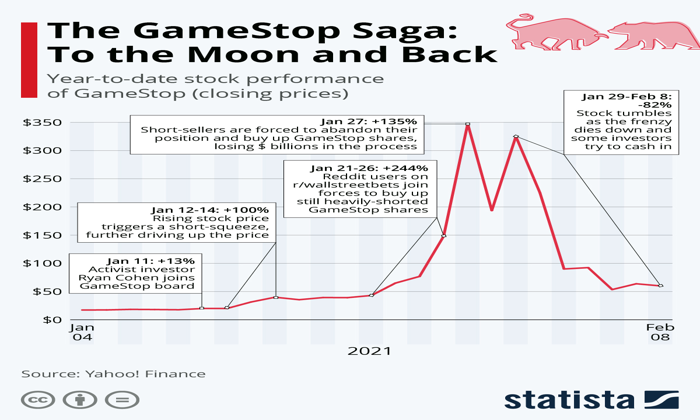Lost Bitcoin has become a haunting tale for many cryptocurrency enthusiasts, especially in the case of James Howells, who believes he left behind 8,000 Bitcoin worth a staggering $676 million in a Welsh landfill over a decade ago. When the UK Court of Appeals denied his request to excavate the site, it set the stage for a deepening cryptocurrency legal battle, as Howell’s pursuit of his assets reaches unprecedented heights. Despite the court’s dismissal, Howells remains determined to challenge the ruling, highlighting the complexities of navigating the legal landscape surrounding digital currencies. His situation underscores the potential for immense wealth lost in the rapidly evolving Bitcoin ecosystem and the challenges faced by investors in securing their virtual fortunes. Amidst rising Bitcoin values and ongoing fluctuations, the narrative surrounding lost Bitcoin continues to capture both media attention and investor curiosity, illustrating the stakes of cryptocurrency investment and ownership in today’s digital age.
The story of forsaken digital assets like Bitcoin resonates deeply with those in the cryptocurrency community, revealing the precarious nature of electronic wealth management. In the case of James Howells, this saga exemplifies the struggles faced by crypto investors when recovering assets that were unintentionally discarded or lost due to mismanagement. Howell, who inadvertently lost access to his vast reserves, has become a symbol of the larger issues that plague cryptocurrency investors, including legal complexities in claims like those presented in the UK court system. As he pursues every available option, including appealing to the European Court of Human Rights, the plight of lost cryptocurrencies remains relevant. This situation echoes a broader concern in digital finance—how personal accountability and legal reform must evolve to protect the interests of investors in an increasingly digital world.
The Ongoing Battle for Lost Bitcoin
James Howells, a software engineer from Wales, has found himself embroiled in a lengthy and complex legal battle surrounding what he claims to be a buried fortune of lost Bitcoin. After mistakenly discarding his hard drive in 2013, which contained the keys to 8,000 Bitcoin, Howell’s life took an unpredictable turn. His appeal to excavate a landfill where he believes the drive was thrown away has been denied by the UK Court of Appeals, marking a significant setback in his quest to regain what is now a multi-million dollar asset. As Howells has indicated, the stakes are extremely high, and every moment lost diminishes his hopes of ever recovering the hard drive containing his lost tokens.
In his ongoing attempts to locate the lost Bitcoin, Howells has considered purchasing the landfill where he believes his hard drive lies. His situation represents the emotionally charged intersection of personal loss and financial opportunity, a theme that resonates deeply with many in the cryptocurrency community. The surreal narrative around Howells’ quest not only underscores the volatility of asset management in the digital age but also showcases the profound impact cryptocurrencies have made on an individual’s financial landscape.
The saga of James Howells and his lost Bitcoin has captured the attention of both the media and the cryptocurrency community. His story raises critical questions about ownership and access to digital currencies—a discourse that has gained momentum in recent years. As Howells prepares to take his case to the European Court of Human Rights (ECHR), he emphasizes a sentiment shared by many crypto enthusiasts feeling overlooked by traditional systems. He passionately argues that the legal system is quick to protect itself while leaving individuals like him in the lurch, highlighting a broader issue within the regulatory frameworks governing cryptocurrency.
The Legal Implications of Cryptocurrency Ownership
The legal challenges faced by Bitcoin holders like James Howells bring to light important nuances surrounding cryptocurrency ownership and inheritance. In Howells’ case, the UK court ruled that his appeal lacked ‘any real prospect of success’—a statement that raises eyebrows concerning existing legal frameworks. As cryptocurrency continues to gain mainstream acceptance, regulators must adapt to the dynamic nature of these assets, emphasizing the need for clear legal standards and channels for reclaiming lost or inaccessible digital currencies.
Moreover, Howells’ prolonged battle illustrates the potential pitfalls of managing cryptocurrencies in an insecure manner. Many individuals possessing significant amounts of Bitcoin face similar threats of losing access, whether due to lost keys or, as in Howells’ case, accidental disposal. The courts are still grappling with how to categorize and assign ownership rights in cases involving cryptocurrencies—a dilemma that further complicates efforts made by holders to secure or regain lost funds. As discussions around these legalities evolve, they will undoubtedly shape the future landscape of cryptocurrency governance.
Cryptocurrency’s Volatility and Investment Risks
The drastic increase in Bitcoin’s value—from just $1,130 in 2013 to over $84,500 today—shows the volatile nature of cryptocurrency investments. This staggering growth has transformed early adopters like James Howells into potential millionaires, but it has also induced significant levels of risk and uncertainty. With such rapid price fluctuations and the high stakes involved, cryptocurrency holders must engage in robust risk management strategies. The story of lost Bitcoin emphasizes that while the rewards can be immense, the consequence of misplaced assets can lead to substantial financial losses.
Furthermore, the growing interest in cryptocurrencies has attracted both seasoned investors and newcomers, many of whom may not fully understand the risks involved. Howells’ case serves as a cautionary tale emphasizing the necessity for proper storage and management of digital assets. As the cryptocurrency market continues to mature, ensuring that investors are educated about securing their holdings is crucial to minimizing similar unfortunate occurrences.
The Emotional Toll of Financial Loss
The emotional stress stemming from the disruption of financial stability is highlighted in James Howells’ plight. His relentless pursuit of the lost Bitcoin is fueled not just by the financial implications but also by the human desire to rectify a significant mistake. Losing access to such a life-changing amount of wealth has resulted in an emotional rollercoaster—something that many in the cryptocurrency space can relate to. For many enthusiasts, cryptocurrencies represent not just monetary value, but dreams of financial independence and prosperity.
In sharing his story, Howells has become a figurehead for those grappling with the consequences of digital asset management. He represents the intersecting realities of ambition, regret, and the search for resolution. This journey reflects the broader emotional landscape navigated by many cryptocurrency holders who might face unexpected obstacles in pursuing their financial aspirations.
Market Fluctuations and Their Impact on Legal Cases
The ever-changing dynamics of the cryptocurrency market create challenges for legal cases like that of James Howells. As Bitcoin’s value fluctuates, so do the perceptions of worth related to cases of lost digital assets. With Bitcoin rising significantly in value, the urgency surrounding Howells’ case seems to amplify—as the rapidly appreciating asset becomes increasingly desirable to recover. Legal systems may find themselves in precarious positions as they navigate financial evaluations that can dramatically change overnight.
This volatility can greatly influence decisions taken by courts, as financial impacts are often dictated by external market conditions. For Howells, the need to act quickly and efficiently becomes more pronounced as local councils prepare to close the landfill site where he believes his hard drive containing the lost Bitcoin lies. Thus, the intersection of fluctuating cryptocurrency values and the legal proceedings surrounding asset recovery highlights the complex nature of advocating for digital asset rights in a fast-paced financial environment.
More Than Just Bitcoin: The Cryptocurrency Landscape
James Howells’ experience with his lost Bitcoin spotlights broader issues within the crypto landscape. While Bitcoin dominates headlines with its soaring prices and unique stories surrounding its investment potential, numerous other cryptocurrencies present both opportunities and risks. As the market diversifies, investors are left contemplating the implications of their choices and the potential for technological advancements that shape the future of blockchain and cryptocurrency asset ownership.
Understanding the implications of cryptocurrencies beyond just their monetary value is pivotal. Each digital asset carries its individual story, challenges, and legal implications—adding to the dimensions of investment strategies and outcomes. This encourages a more nuanced exploration of the entire cryptocurrency ecosystem, where the likes of Ethereum and new entrants also wrestle with their own issues of legal clarity and ownership.
Public Perception of Cryptocurrency Legal Battles
As stories like that of James Howells emerge, they shape public perception regarding the legality and safety of investing in cryptocurrencies. The broader narrative surrounding these legal battles often highlights both the potential riches and the inherent dangers involved in managing digital assets. This dichotomy influences how the public approaches cryptocurrencies and, in many cases, raises concerns about the viability of claiming ownership and navigating regulatory systems.
Additionally, the way media outlets cover such stories plays a significant role in framing the public’s understanding of cryptocurrency challenges. Issues stemming from lost access due to mismanagement or accidents like Howells’ have the potential to deter new investors, presenting the market as a treacherous landscape fraught with pitfalls. This highlights the importance of transparent communication and public education in elevating awareness of safe investment practices while navigating the complexities of cryptocurrency management.
The Future of Cryptocurrency Regulation
The ongoing legal battles surrounding cases like James Howells’ undeniably inform and influence the future landscape of cryptocurrency regulation. As the cryptocurrency market continues to evolve, it is essential for regulators to take note of challenges faced by investors in securing their digital assets. This calls for a greater awareness of the need to establish clear guidelines and legal frameworks that address ownership, recovery rights, and the protection of assets. The resolution of Howell’s case could set a precedent for future legal disputes, confirming the critical role of justice in guiding cryptocurrency regulatory practices.
Moreover, movements within the legal system around cryptocurrency are not merely reactive but can also be proactive, encouraging institutions to introduce more comprehensive systems for digital asset management. As demand for cryptocurrency continues to grow, regulatory bodies must prioritize crafting legislation that not only protects investors but also supports innovation across the industry. It is crucial that evolving laws keep pace with the rapid technological advancements that characterize the cryptocurrency realm.
Frequently Asked Questions
What happened in the Bitcoin appeal case of James Howells?
In the Bitcoin appeal case, James Howells sought permission to excavate a landfill in Wales where he believes his hard drive, containing the keys to 8,000 lost Bitcoin, was discarded. The UK Court of Appeals ultimately denied his request, stating that the appeal had ‘no real prospect of success.’ This ruling has led Howells to consider further legal action at the European Court of Human Rights.
How much Bitcoin does James Howells believe he has lost?
James Howells believes he lost access to 8,000 Bitcoin, which he mined in 2009. The value of these tokens has dramatically increased over the years, reaching an estimated worth of $676 million at the time of the latest court proceedings.
What are the implications of the UK court’s decision on lost Bitcoin recovery efforts?
The UK court’s decision underscores the challenges individuals face in recovering lost Bitcoin, particularly in legal battles. With Howells now facing limited options and a landfill set to close by 2025-26, the ruling highlights the complexities surrounding cryptocurrency recovery in legal contexts.
What are the legal challenges associated with retrieving lost Bitcoin from a landfill?
Retrieving lost Bitcoin from a landfill involves numerous legal challenges, including proving ownership of the cryptocurrency, obtaining judicial permission for excavation, and navigating local regulations. In the case of James Howells, his inability to gain a favorable ruling from the UK court exemplifies these hurdles.
Is there a precedent for Bitcoin found in landfill cases?
While there have been rumors and discussions about Bitcoin found in landfills, James Howells’ case is one of the most notable attempts to reclaim lost Bitcoin assets from such a location. This situation highlights the ongoing complexities faced by cryptocurrency holders regarding asset recovery under current laws.
What steps can individuals take to avoid losing access to their Bitcoin?
To avoid losing access to Bitcoin, individuals should ensure proper storage of their private keys, using secure hardware wallets and backup measures. Keeping detailed records and utilizing trusted cryptocurrency management practices can significantly reduce the risk of losing access to digital assets.
How has James Howells’ case influenced discussions about cryptocurrency legal battles?
James Howells’ case has intensified discussions about the complexities of cryptocurrency ownership and recovery, raising awareness about legal limitations and the need for clearer regulations regarding digital asset management and retrieval efforts.
What can we learn from James Howells’ experience with lost Bitcoin?
James Howells’ experience with lost Bitcoin serves as a cautionary tale about the importance of secure cryptocurrency management. It also sheds light on the limitations of current legal frameworks in addressing the unique challenges posed by digital assets.
| Key Point | Details |
|---|---|
| Court Decision | The UK Court of Appeals denied James Howells’ request to excavate a landfill for his lost hard drive. |
| Value of Lost Bitcoin | Howells lost access to 8,000 Bitcoin, worth approximately $676 million today. |
| Legal Battle | Howells has exhausted UK legal channels and now plans to appeal to the European Court of Human Rights. |
| Historical Context | Howells lost his hard drive in 2013 when Bitcoin was valued around $1,130; it’s now trading above $84,000. |
| Economic Impact | Bitcoin’s value has increased over 7000% since 2013, reflecting its growing market significance. |
| Personal Struggle | Howells views his situation as an injustice and is determined to recover the lost Bitcoin. |
| Future Uncertainty | The landfill where his hard drive is believed to be buried is set to close by 2025-2026. |
Summary
Lost Bitcoin has become a poignant topic as James Howells continues to fight for the retrieval of his hard drive containing 8,000 Bitcoin, valued at approximately $676 million today. Despite the UK Court of Appeals ruling against him, Howells is not giving up and aims to take his case to the European Court of Human Rights. His story reflects the potential for wealth intertwined with the turmoil of securing and managing cryptocurrency assets, highlighting the broader challenges faced by individuals in the crypto space. As governments and institutions grapple with the implications of lost digital assets, Howells’ persistent quest underscores the importance of safeguarding cryptocurrency investment for both personal wealth and future legacy.
Lost Bitcoin has become a tale of desperation and ambition for many, notably highlighting the case of James Howells. This Welsh software engineer once held 8,000 Bitcoin, now worth a staggering $676 million, lost when a hard drive containing his digital keys was inadvertently discarded in a landfill. Howells’ lengthy battle with the UK courts has captivated cryptocurrency enthusiasts, as he strives to access the site where he believes his fortune lies buried. Despite his recent defeat in the UK Court of Appeals, which denied his appeal to excavate the landfill, Howells remains resolute, eyeing the European Court of Human Rights for justice within this cryptocurrency legal battle. As tales of Bitcoin found in landfills circulate, the allure of lost Bitcoin serves as a powerful reminder of the volatile and precarious nature of digital currencies in our tech-driven world.
The story of lost digital currency often converges with themes of hope and resilience, as seen with James Howells and his struggle to reclaim wealth buried beneath tons of waste. This cryptocurrency saga reveals the challenges many face in safeguarding their assets in an evolving financial landscape. The complexities surrounding the cryptocurrency appeal case are further enhanced by the legal implications and unique stories of individuals attempting to recover their fortunes. The concept of cryptocurrencies being lost or discarded points to a growing concern among investors regarding asset management and digital security. As the quest for lost Bitcoin unfolds, it not only features a personal journey but also underscores the evolving relationship between technology, law, and personal wealth in the cryptocurrency era.















